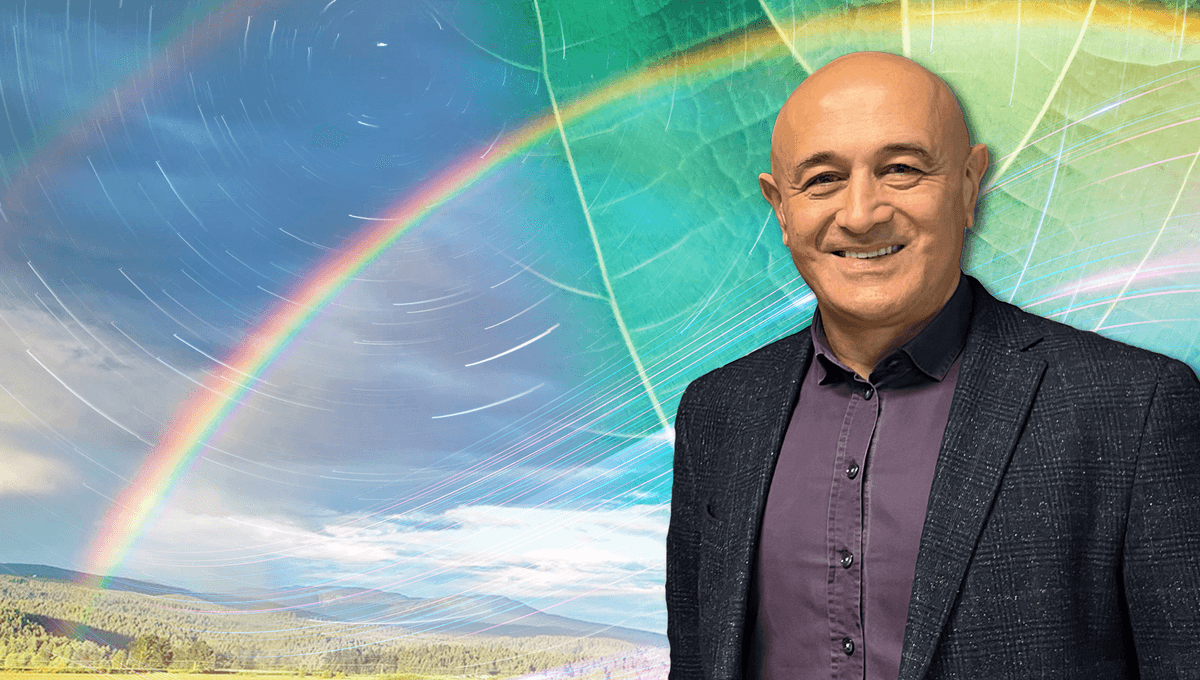
When it comes to the information that we’re faced with every day – be that scientific or otherwise – it’s not always easy to know what information to trust, and which sources are reliable. Fortunately, some of the ideas and thought processes that underpin the scientific method can actually help us to navigate the news, while also adding to our appreciation of the world around us.
To dive into how thinking scientifically can help us better navigate just about everything, we traveled to the University of Surrey, UK, to speak to renowned theoretical physicist and broadcaster Professor Jim Al-Khalili. As the author of The Joy Of Science, Al-Khalili has picked up his fair share of tips on how thinking scientifically can help us better live our lives, from understanding breaking stories to truly appreciating a good rainbow.
Tell us about The Joy Of Science
Jim Al-Khalili: In a non-religious/spiritual way, science adds to our appreciation of the world around us. There’s a famous quote by physicist Richard Feynman who argues against the artist who said, “I see a flower, and I see its beauty. You scientists break it up into its molecules,” and he says, “No, I also see the beauty of the flower, but a scientific understanding adds to that appreciation.”
In the book, I talk about the rainbow and how we can all stand and enjoy the beauty of a rainbow, but understanding a bit of the science actually makes it even more inspiring. For example, no two people standing next to each other see the same rainbow because the raindrop that reflects that color light is reflecting it into your eye, not into someone else’s, so we all see it differently.
There is a joy in understanding science that we can all have, you don’t have to have many years of training. So, it’s more than just thinking rationally and logically and sort of Mr Spock, cold, hard logic. There are ways of doing science that we learn as scientists that we sort of take for granted, but I think there are lots of lessons there that could be exported to everyday life.
Can a scientific way of thinking help us have more productive disagreements and discussions?
JA-K: I hope so. That was partly the motivation for the book. We live in a world where, particularly on social media, opinions are so polarised. So black and white, and people are so certain that they are on the right side of history, but the other side also thinks the same thing.
In science, it isn’t black and white. Scientists are people and we want our theories, our ideas, our experimental data to be correct, but we know that if we’re wrong, we’re wrong. We’re going to have to move with it, because otherwise we’d be left behind. If only [we could all adopt that] examining of what you believe, rather than trying to win the argument at all costs, I think that would make for a healthier society.
So getting it wrong isn’t such a bad thing?
JA-K: It’s a strength. It’s empowering to be able to admit that you’re wrong. You don’t hear a politician saying, “Sorry, I had this particular economic policy that I wanted to implement. I’ve talked to some people who know more about it than me, and I’ve now changed my mind.” That’s seen as a weakness.
In science, that’s a strength because if no one changed their minds, if you had a theory that you stuck with, regardless, we’d never make any progress in science. We would still be thinking what we thought 2,000 years ago. Being able to admit you’re wrong, examining what you believe, and reassessing it in the light of new data and new evidence, that is the way we progress in science.
Why do you think so many of us find it hard to consider we might be wrong?
JA-K: It’s uncomfortable to be faced with something that’s contrary to what you believe. Cognitive dissonance is the term, it’s a real sense of discomfort [to think] I believe something, and then someone presents me with evidence to the contrary. I don’t want to change my mind, it’s really hard, even with the best will in the world.
Prof. Jim Al-Khalili’s top tips for navigating the news with science:
- It’s important to look under the surface. When you get a bit of information, it’s very useful to find out whether it’s a reliable source. Could they have an ulterior motive for pushing a particular view?
- If you’re having a debate with someone, just pause and tell yourself, it’s not about winning the argument. So what if you win? Surely it’s more important to get to the truth of the matter.
- Always be open to examining your own biases, and empathize with the other person’s point of view.
- Admitting you’re wrong doesn’t mean you’re stupid. It’s why Professors have no problem asking the dumbest questions at a science seminar, because they aren’t worried about their reputation.
Catch the full interview on YouTube.
Source Link: Professor Jim Al-Khalili On The Joy Of Science, Getting It Wrong, And Why The Truth Matters More Than Winning